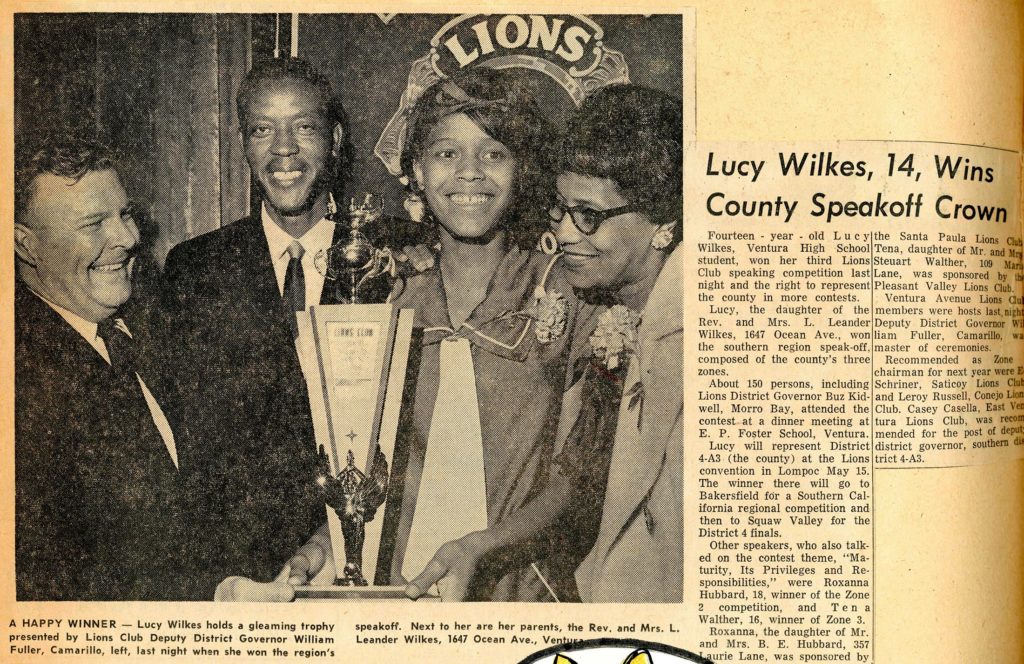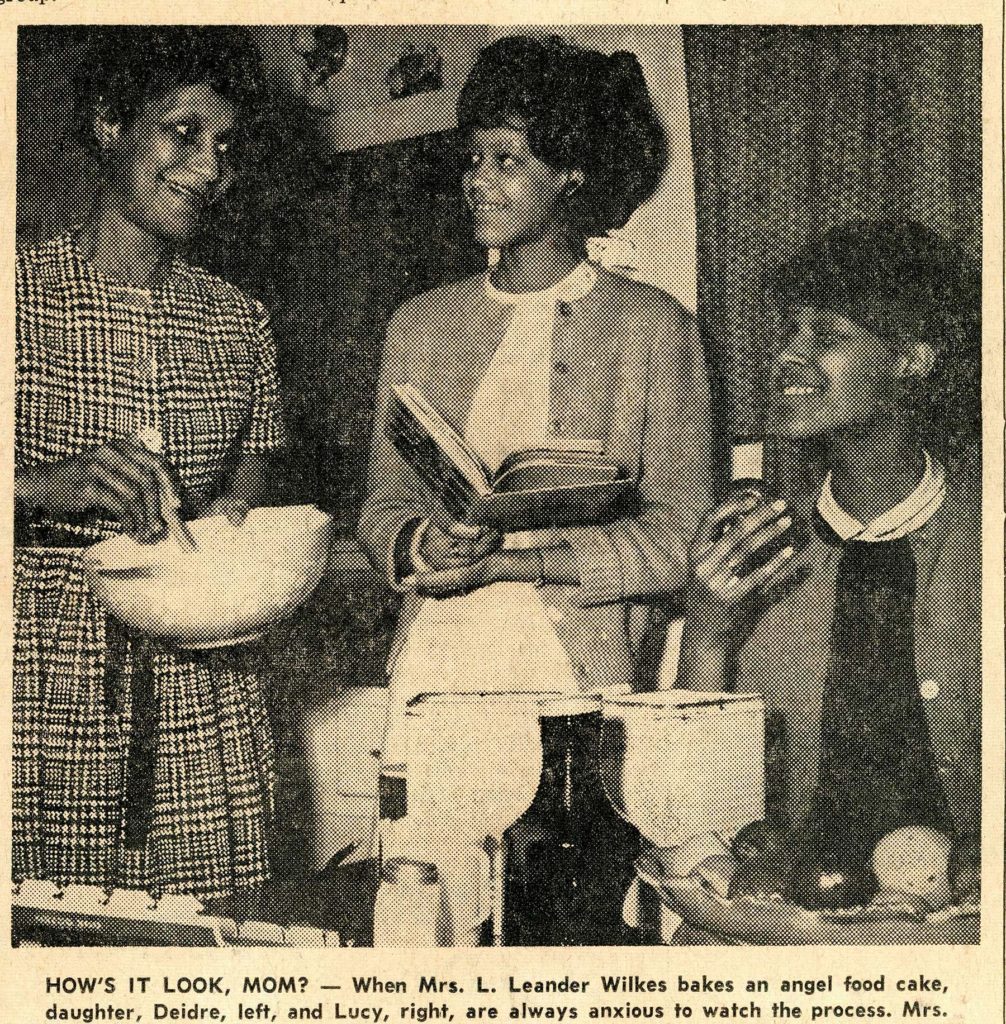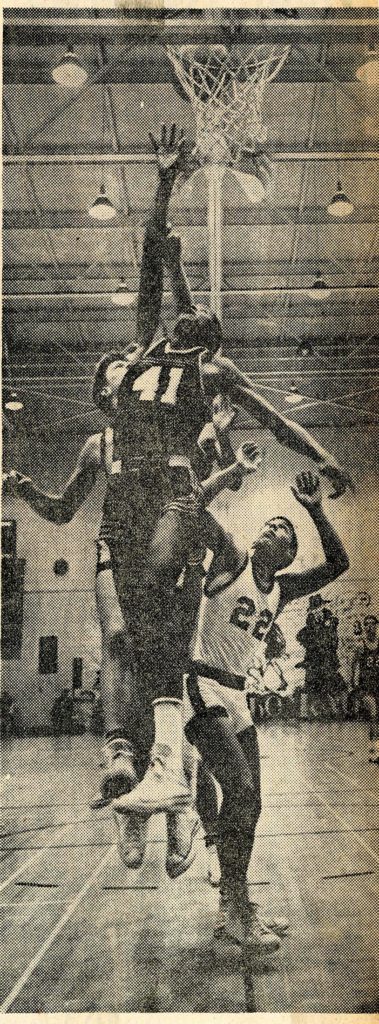Brought to you straight from MVC’s archive! You may or may not know that Ventura High School was once home to Jamaal Wilkes, a former NBA All-Star who won four championships. He played for Ventura High School until his senior year, when his father, L. Leander Wilkes, became the pastor of Second Baptist Church in Santa Barbara. Wilkes went on to play for UCLA in college, then the Golden State Warriors, Los Angeles Lakers, and Los Angeles Clippers. Due to his slender build and his quick, smooth style of playing he earned the nickname “Silk.”
While Jamaal Wilkes is a well-known figure, the scrapbooks in our Ventura High School Collection (MVC059) also feature his two older sisters, Deidre and Lucy Wilkes. An article titled “Wilkes Family Takes Home Another Honor,” describes the Wilkes children as “constantly earning academic and special honors.” It highlights Deidre and Lucy as exceptionally gifted and active, including being members of service clubs, winning speech contests, and singing in the choir. Deidre even worked as a page at the Ventura County Library! And Lucy reportedly skipped two grades in elementary school.
A second article in the scrapbook reports that Lucy won her third Lions Club speech competition at age 14. The photograph shows a beaming Lucy holding a trophy next to her father and mother. The contest theme was “Maturity, it’s Privileges and Responsibilities.” While the scrapbooks record the many accolades of the family, it gives only hints of what Deidre and Lucy’s experiences were as young Black women at Ventura High in the mid-1960s. There is a cartoonish depiction of Lucy in one of the pages of the scrapbook with a speech bubble asserting “There’s nothing unusual about me!” We don’t get to hear directly from Lucy or Deidre.
Often the historical record is lacking when it comes to the lives of Black women preserving only part of the story, like we have here. It is only enough to pique curiosity. We’re sharing this not only to give the Wilkes family their due, but in the hope that someone has more pieces of the story. If you do, we’d love to hear from you. Hopefully by processing and making this collection available, researchers can look more closely at the lived experiences of both teenage girls generally, and BIPOC teenagers specifically, to include their stories in history.



